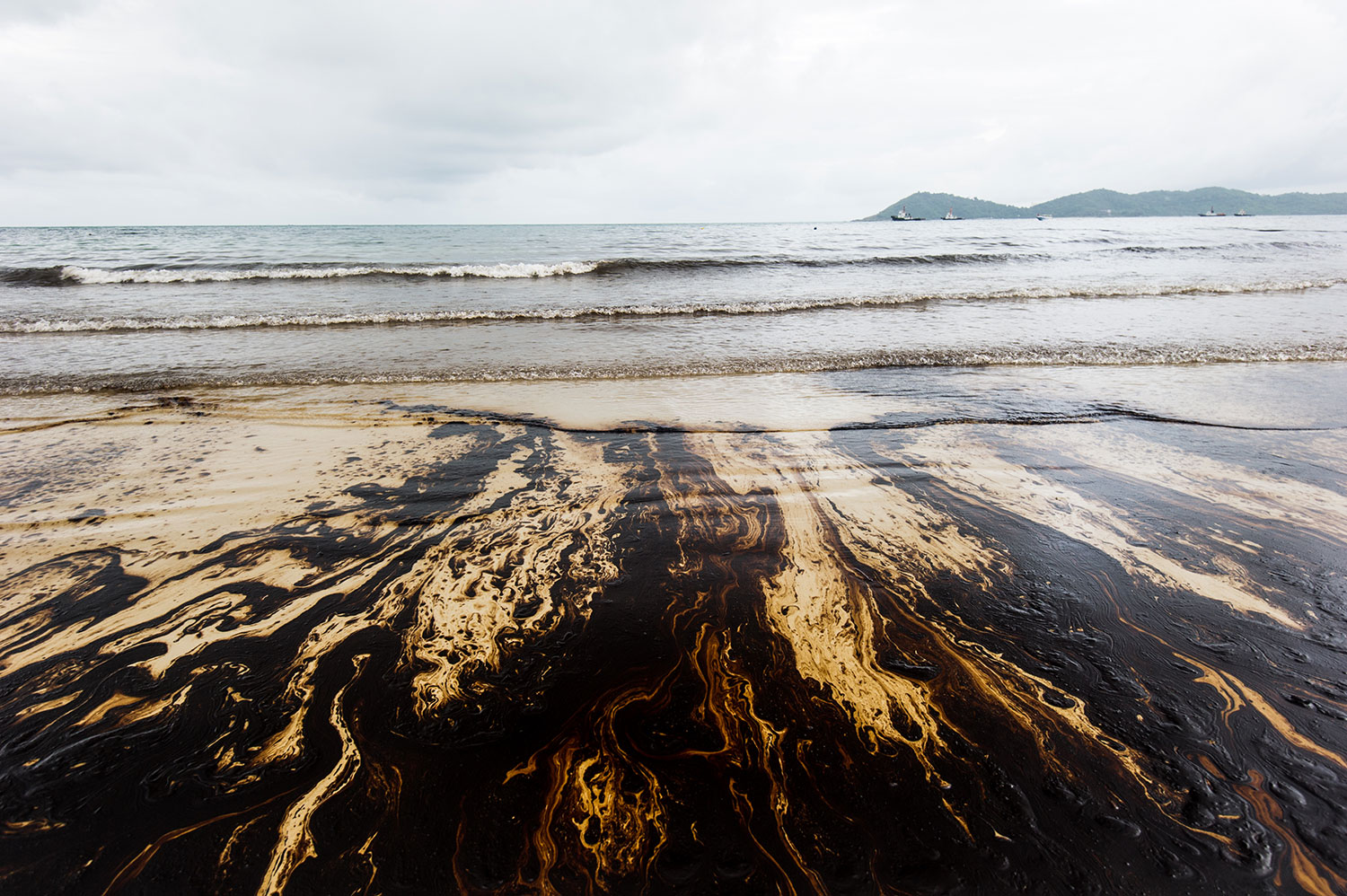Breaking news in California. Yesterday, Governor Gavin Newsom signed Assembly Bill (AB) 3214, which increased criminal penalties for oil spill-related offenses under California’s Lempert-Keene-Seastrand Oil Spill Prevention and Response Act. This bill was opposed by many industry groups, including the International Chamber of Shipping, The International Group of P&I Clubs, and the Pacific Merchant Shipping Association.
AB 3214 COULD HAVE BEEN WORSE, BUT IT IS STILL SIGNIFICANT.
As originally drafted, AB 3214 called for doubling the required COFR amounts (from $1 billion to $2 billion for tankers) and proposed new criminal penalties of up to $10,000 per gallon of oil spilled. As a result of the legislative process, the proposed COFR amendments were removed, and the original proposed criminal penalties were adjusted.
Under prior California law, codified as Section 8670.64 of the California Government Code, oil spill-related violations could be criminally punished with a fine of between $5,000 to $500,000.
The new law significantly increases penalties in two ways.
First, the new law doubles the existing fines such that, upon conviction, a state court must now impose a fine of between $10,000 and $1,000,000.
Second, for spills over 1,000 gallons, the new law permits courts to impose a new, additional fine of up to $1,000 per gallon spilled.
The new law affects only fines. The underlying offenses apply to a “person” who
(1) knowingly fails to follow the direction or orders of the administrator in connection with an oil spill.
(2) Knowingly fails to notify the Coast Guard that a vessel is disabled within one hour of the disability and the vessel, while disabled, causes a discharge of oil that enters marine waters.
(3) Knowingly engages in or causes the discharge or spill of oil into waters of the state, or a person who reasonably should have known that the person was engaging in or causing the discharge or spill of oil into waters of the state unless the discharge is authorized by the United States, the state, or another agency with appropriate jurisdiction.
(4) Knowingly fails to begin cleanup, abatement, or removal of spilled oil as required in Section 8670.25.
A “person” is defined to include “an individual, trust, firm, joint-stock company, or corporation.” Gov. C. § 8670.3.
DOUBLE PROSECUTION IS POSSIBLE, BUT NOT LIKELY.
Whether this change in the law will result in higher penalties in a case is highly fact-dependent. It is unlikely -although not impossible- that a defendant would be exposed to criminal penalties under U.S. federal laws and California state law for the same conduct. In major spills affecting both state and federal interests in California, the relevant prosecutorial authorities have usually reached agreement early in their criminal investigations as to which sovereign (state or federal) would prosecute the criminal case. In the Cosco Busan (2007) case in San Francisco Bay, the federal government prosecuted the case with support from federal and state agencies. In the Refugio spill (2015), the situation was reversed.
The “double jeopardy” clause of the fifth amendment of the U.S. Constitution commands that “No person shall . . . be subject for the same offense to be twice put in jeopardy of life or limb . . . . ” This prohibition against repeated prosecutions for the same misconduct has been repeatedly held not to protect a person from prosecutions by the “separate sovereigns” of the state and federal government. (For instance, following the Oklahoma City Bombing that killed 168 people in 1995, one of the perpetrators (Terry Nichols) was prosecuted by the United States. After Nichols received “only” a life sentence in the federal court, the State of Oklahoma prosecuted him in the hopes of a death penalty.)
California law provides greater protection against double jeopardy to criminal defendants. Article I, section 15 of the California Constitution states that “Persons may not twice be put in jeopardy for the same offense.” California Penal Code section 687 states that “No person can be subjected to a second prosecution for a public offense for which he has once been prosecuted and convicted or acquitted.” But more powerful is Penal Code section 656:
“Whenever on the trial of an accused person it appears that upon a criminal prosecution under the laws of the United States, or of another state or territory of the United States-based upon the act or omission in respect to which he or she is on trial, he or she has been acquitted or convicted, it is a sufficient defense.”
And Penal Code 793:
“When an act charged as a public offense is within the jurisdiction of the United States, or of another state or territory of the United States, as well as of this state, a conviction or acquittal thereof in that other jurisdiction is a bar to the prosecution or indictment in this state.”
The practical effect of these laws is to bar the State of California from prosecution if the United States undertakes the same enforcement activity. While the law does not strictly prohibit the United States from separately prosecuting a defendant already under indictment by the state, this is not common.
COMPARING STATE AND FEDERAL CRIMINAL FINES.
Do the increased criminal fines under California law mean that there would be significantly greater penalties following a major spill along the lines of a Cosco Busan (with approximately 53,000 gallons spilled)? Maybe not. Starting with the presumption that there would be only one criminal prosecution (state or federal), it is useful to compare the criminal penalties available for the spill in each jurisdiction.
The California Penalties
With the new fines discussed above, a California court would have two sets of fines to consider. First, the Court would be required to assess a fine of at least $10,000 and as much as $1,000,000. Second, because this spill would exceed 1,000 gallons, the California court would also have discretion to impose additional fines of $1,000 per gallon – up to $53,000,000 for a spill the size of Cosco Busan. Between the two fines, the total maximum penalty would be $54,000,000.
The Federal Penalties
Under the federal Clean Water Act, as amended by the Oil Pollution Act of 1990, the criminal penalties for the discharge of oil are fairly low: $25,000 for a first offense of a negligent discharge and $50,000 for “knowing” violation. 33 USC 1391(c)(1) and (2).
However, the Alternative Minimum Fines Act, provides “If any person derives pecuniary gain from the offense, or if the offense results in pecuniary loss to a person other than the defendant, the defendant may be fined not more than the greater of twice the gross gain or twice the gross loss, unless imposition of a fine under this subsection would unduly complicate or prolong the sentencing process.” 18 USC 3571. In Cosco Busan (which was criminally prosecuted in the federal courts), the third superseding indictment alleged a gross loss to persons that included at least $20 million. Through that allegation (of gross loss of $20M – most of which was clean-up costs) the federal prosecutors effectively increased the maximum federal criminal penalty to $40,000,000.
Of course, in most prosecutions, the indictment will include additional allegations. (The federal EPA lists some of the more common charges here: https://www.epa.gov/enforcement/criminal-provisions-water-pollution )
FINES ARE JUST THE BEGINNING.
Whether this change in the law will result in higher penalties is yet to be seen, but it is likely that prosecutors will be emboldened to seek higher penalties given this new amendment. As pointed out by industry stakeholders who opposed these changes in the law, this will likely have an unintended effect on the cost and availability of insurance covering these types of losses.
It should also be noted that following an oil spill, criminal penalties and defense costs are but a fraction of the overall exposure. Clean-up costs, civil suits, and environmental and natural resource damages typically represent much larger amounts of the overall costs associated with an oil spill.


